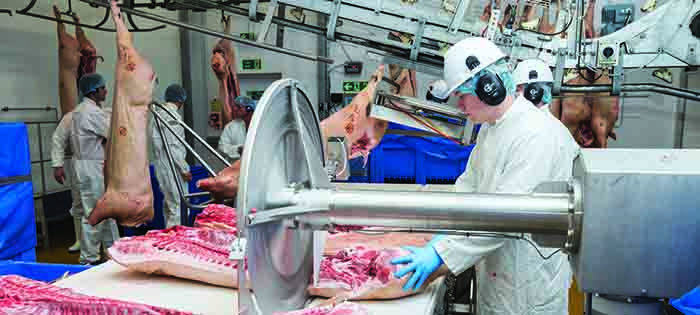Quality Meat Scotland (QMS) has predicted that the acquisition of Quality Pork Processers Ltd in Brechin by Browns Food Group may help alleviate some of the ongoing challenges faced by the sector.
Senior economics analyst at QMS, Iain McDonald, said that the change in ownership should help a recovery in pig slaughter towards the levels seen in 2020, and will come with wider benefit to the Scottish economy given.
“The pig carcases will be converted into cuts of pork and other pigmeat products at processing sites in Scotland,” said Mr McDonals. “As a result, economic value will be added, and employment supported, in Scotland rather than at production sites south of the border,”
The latest market commentary from QMS indicated that although the pace of price declines for pig producers has eased from the autumn peak, pig sector data continues to highlight severe challenges for Scotland’s producers and processors.
Mr McDonald said that downwards pressure on the pig market has come from an inability of the processing sector to expand output to handle an increased supply of finished pigs, largely due to the lack of ‘suitably skilled’ workers after the UK’s departure from the EU making it difficult to recruit from overseas.
He noted one positive for producers being the rise in carcase weights offsetting lower per kilo prices, resulting in higher average prices per carcase, with the price per carcase 5% higher than last year and 4% above its five-year average in the final week of January.
He said, however, that this is before factoring in the cost of production: “Back in the late summer and early autumn, grain and soya futures prices had fallen back from the highs of early 2021 and Defra’s compound feed report for the July to September period had suggested that, while still 13% higher than a year before, the cost of pig feed had eased slightly on the quarter.”
Since then, a deterioration in the expected global balance of supply and demand for grain has seen prices for wheat and barley surge by around 15% and 25% respectively.
Elsewhere, a dry summer in Argentina and Brazil caused a tightening of global soyabean supply, pushing up the price of soyameal by around 15% since the autumn.
As a result, the higher prices for raw materials will have been passing into the price of compound feeds over the winter, likely raising them beyond the levels last reported by Defra from Q3 2021.




